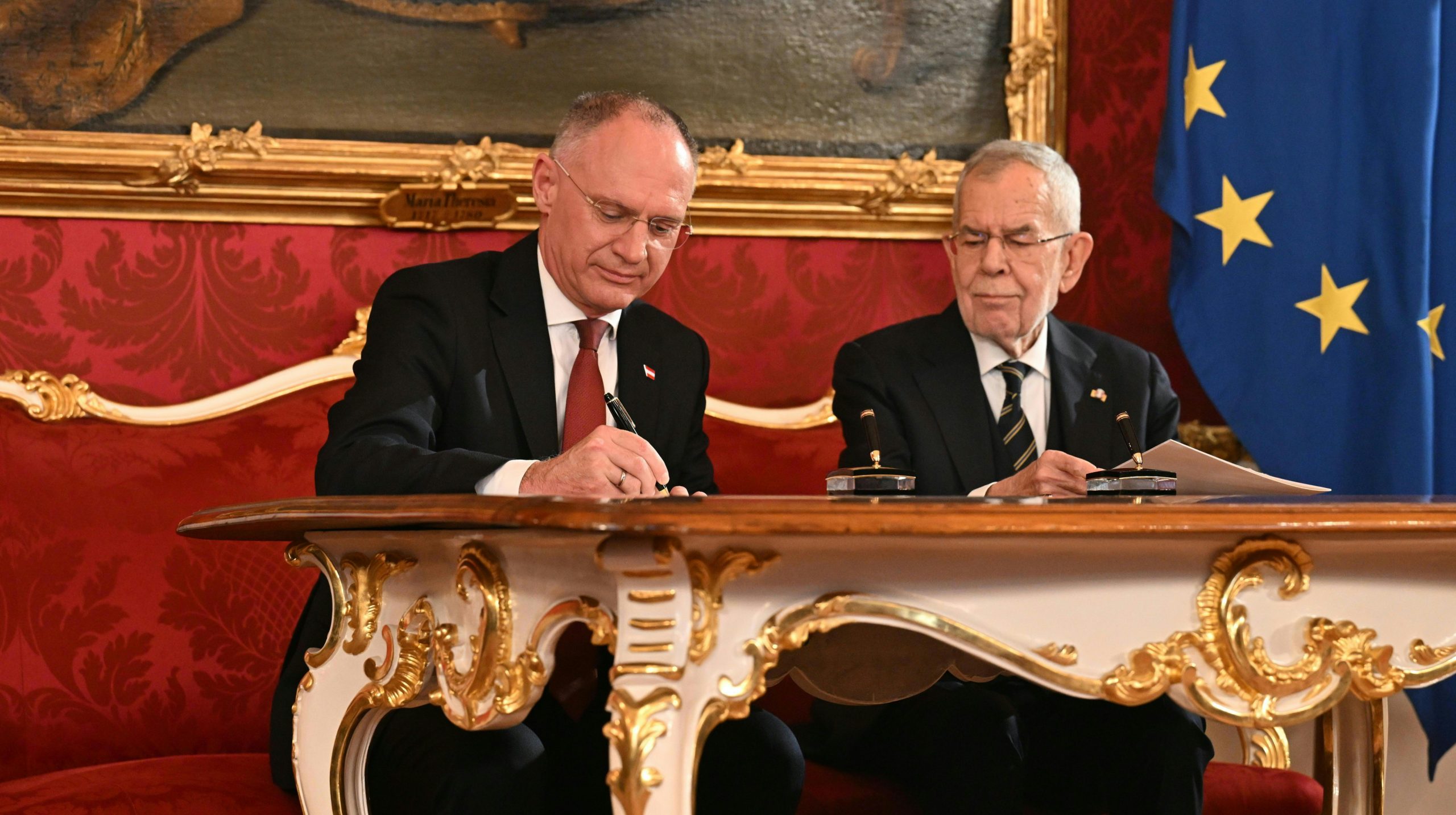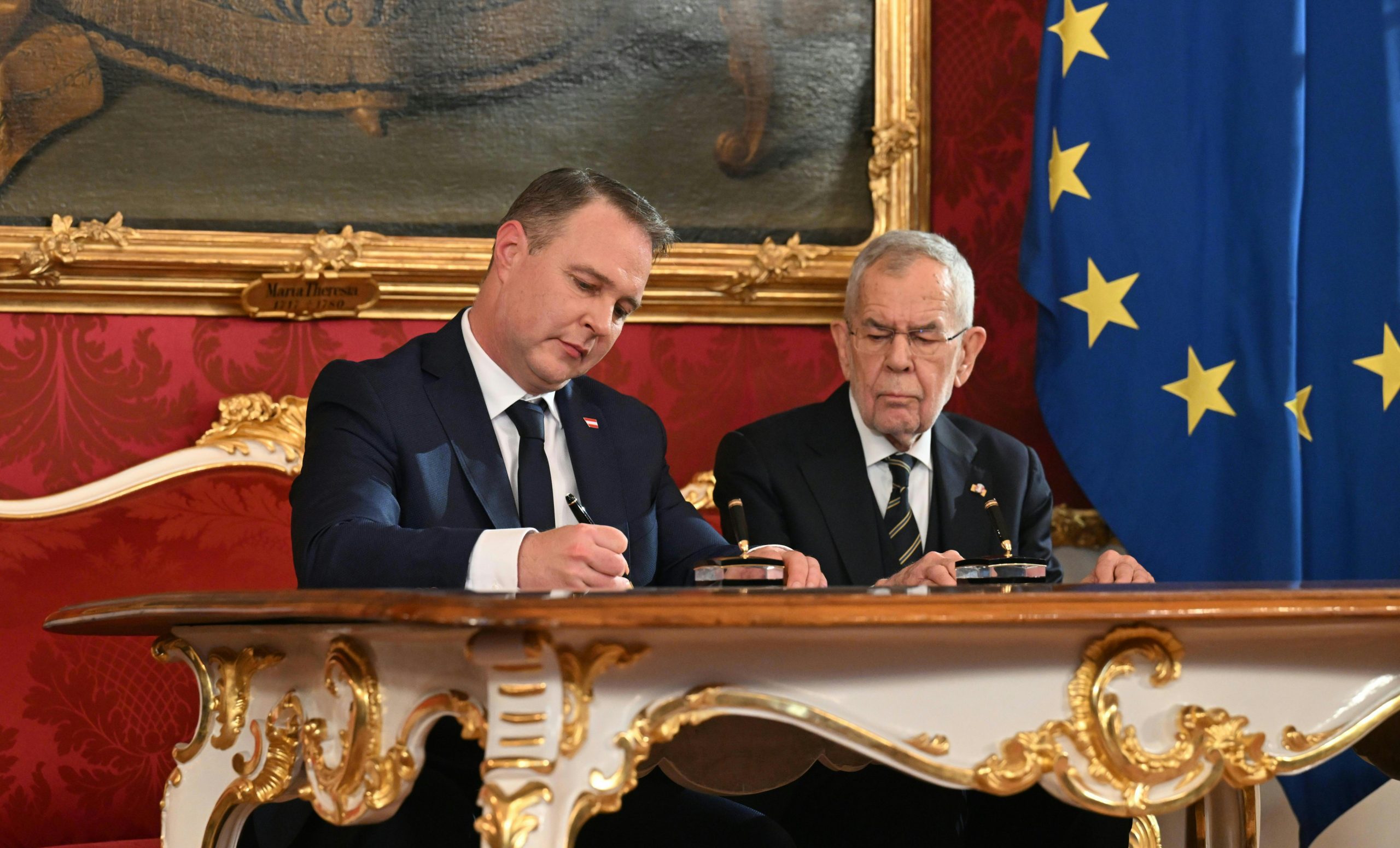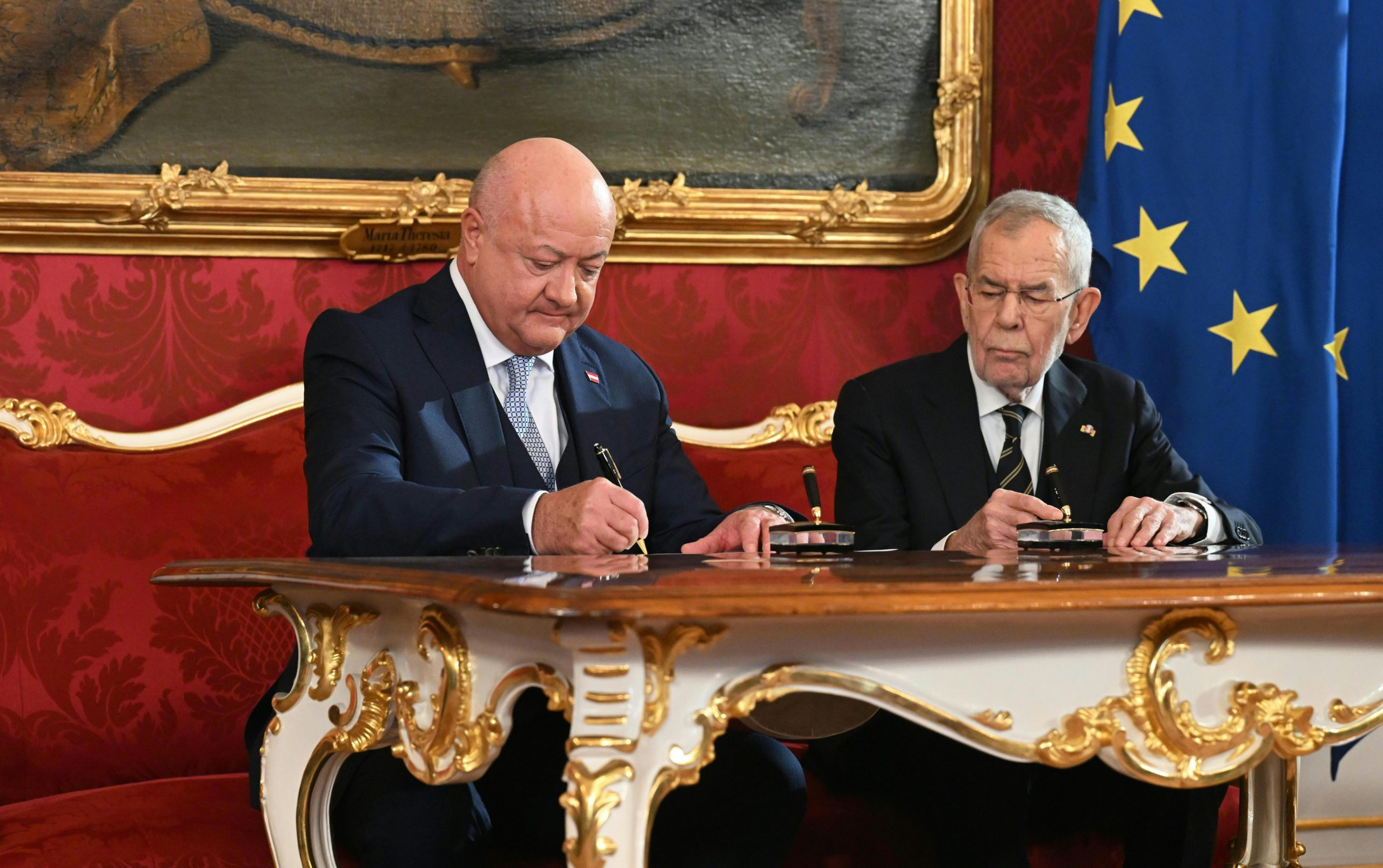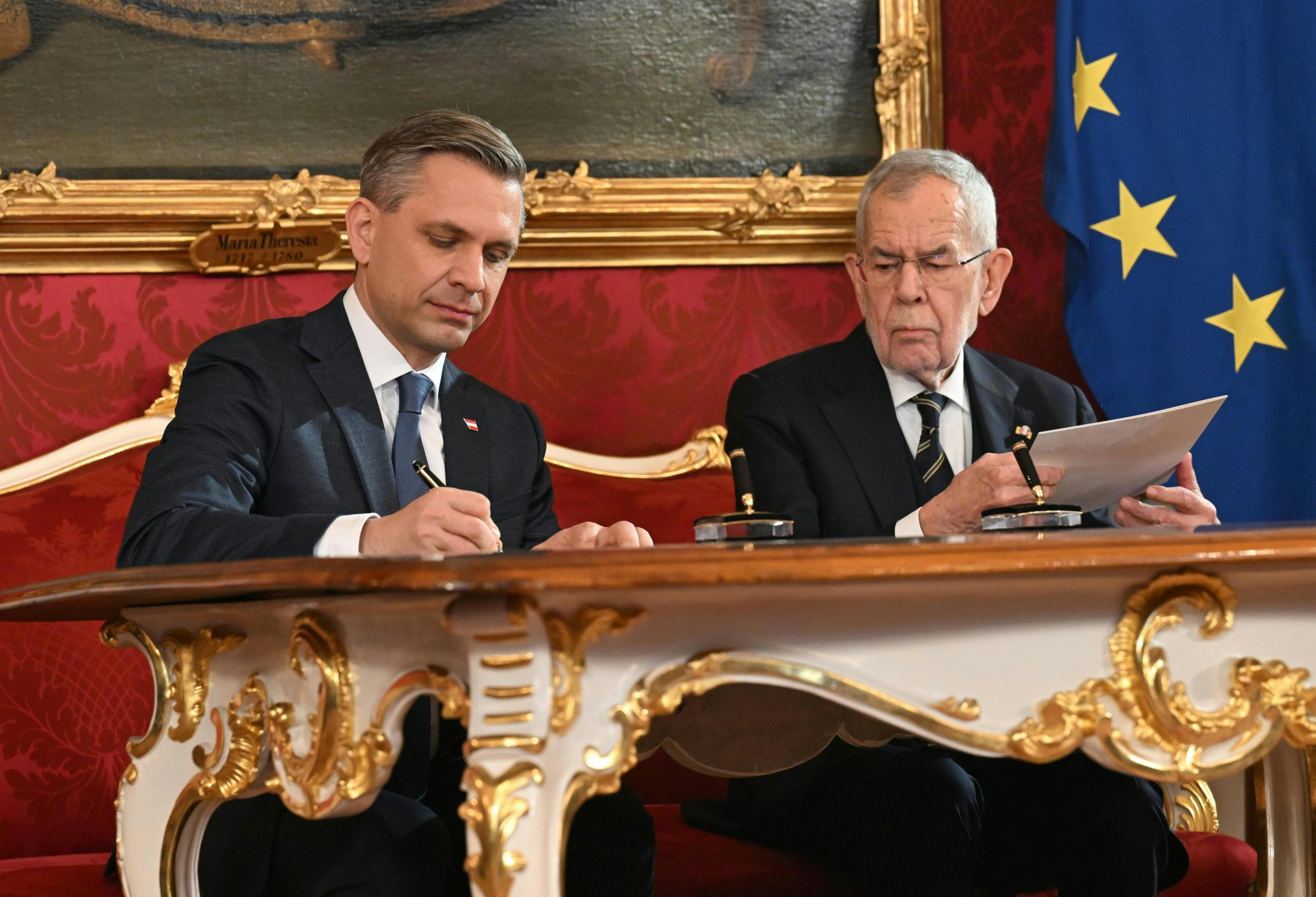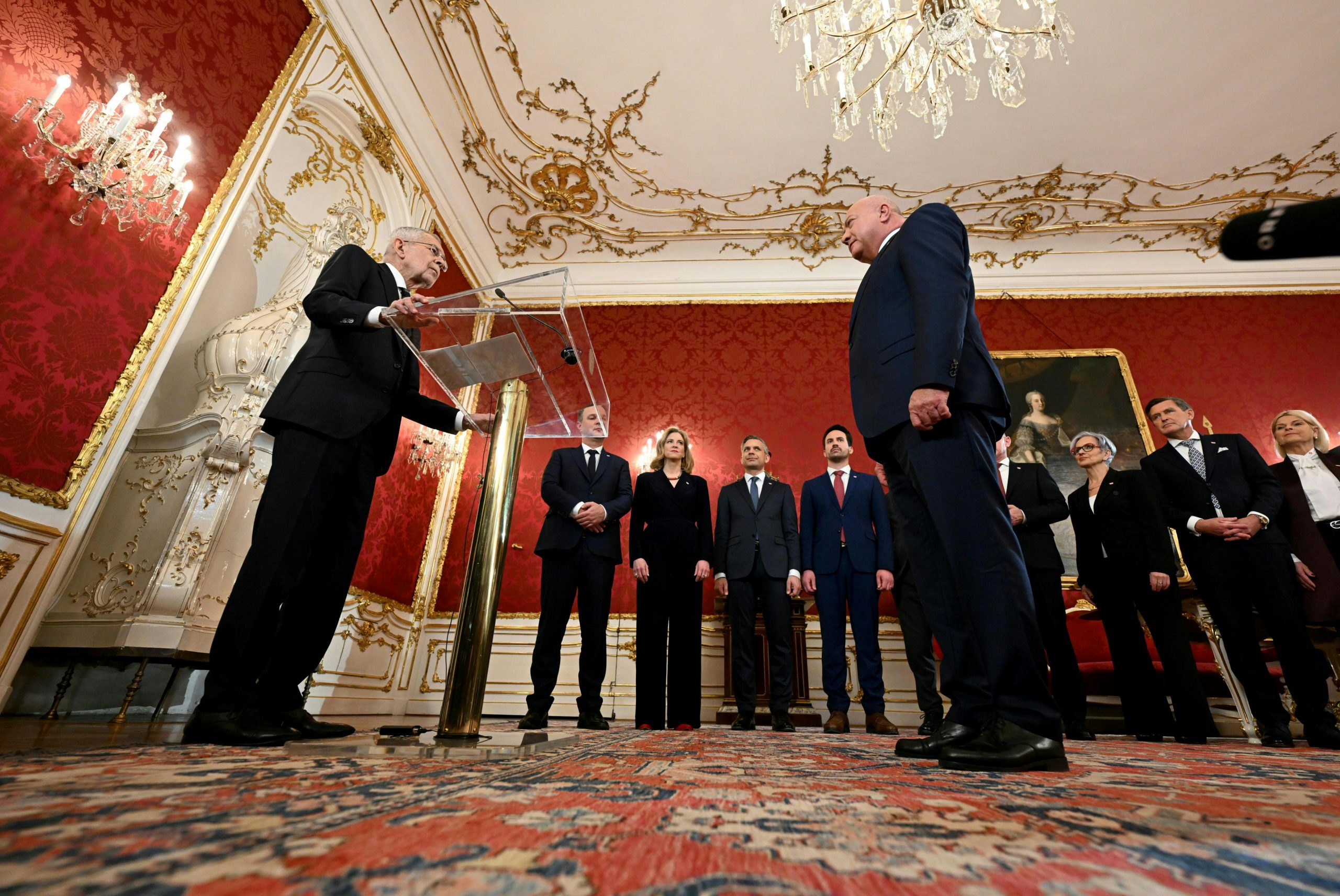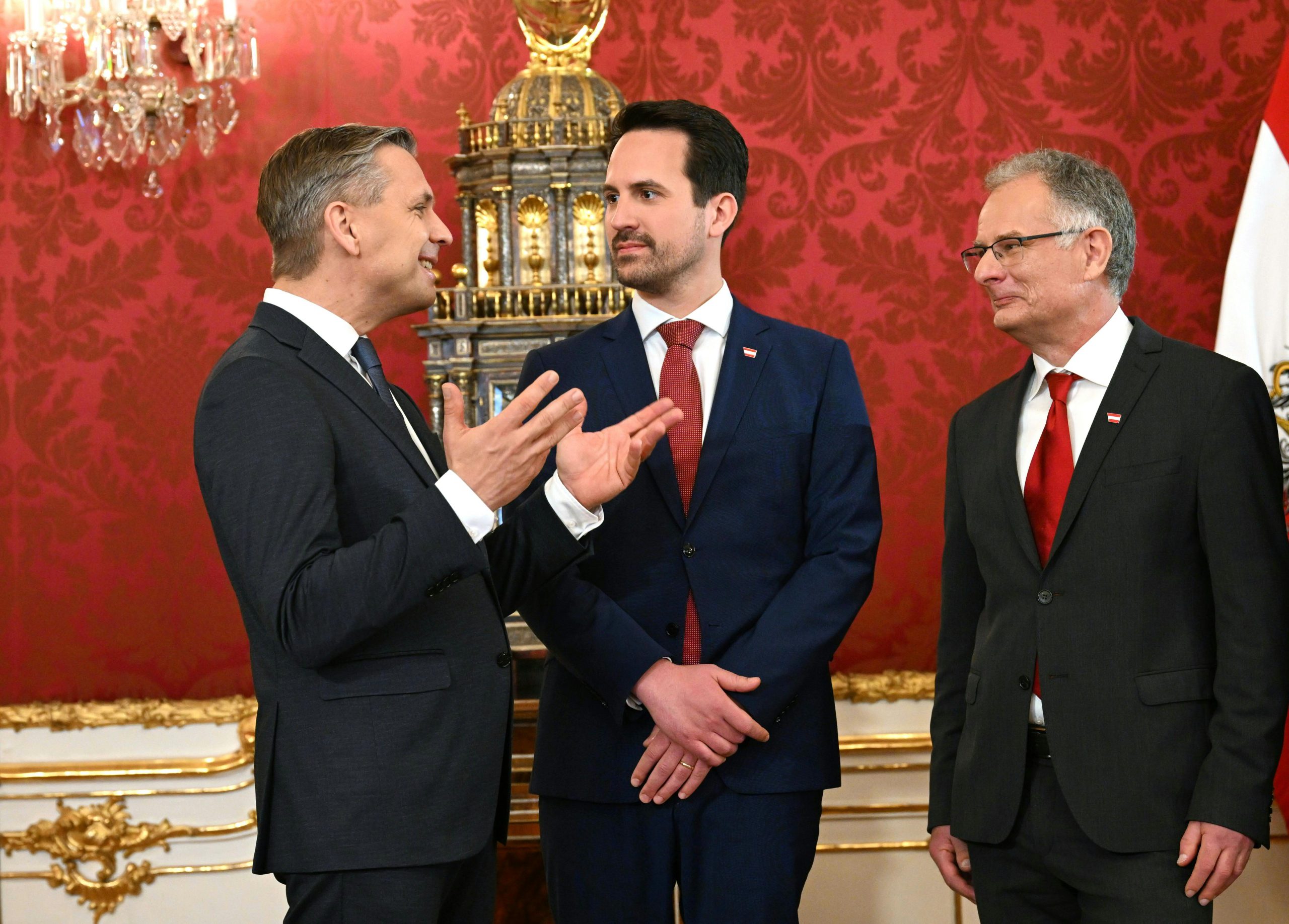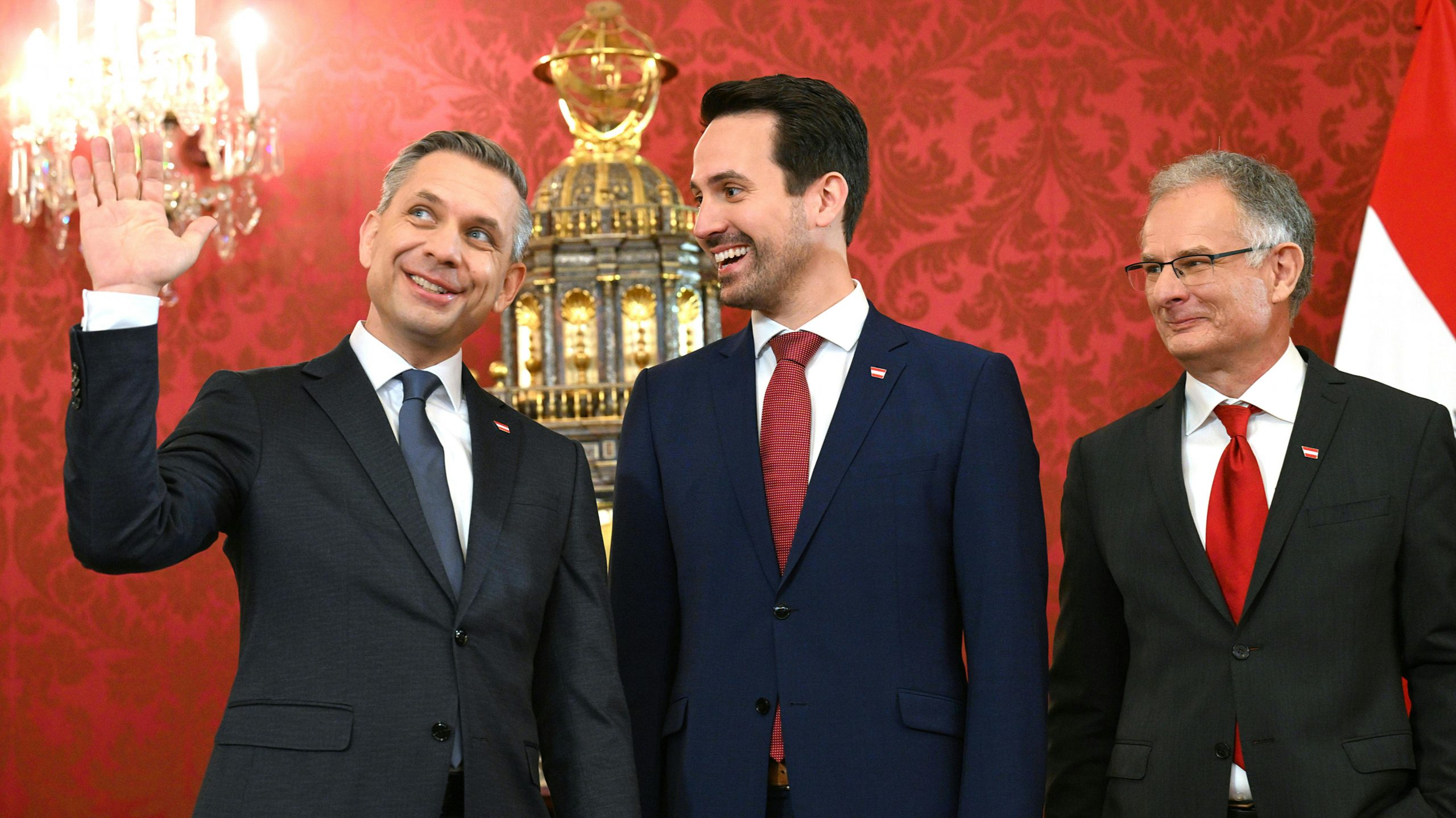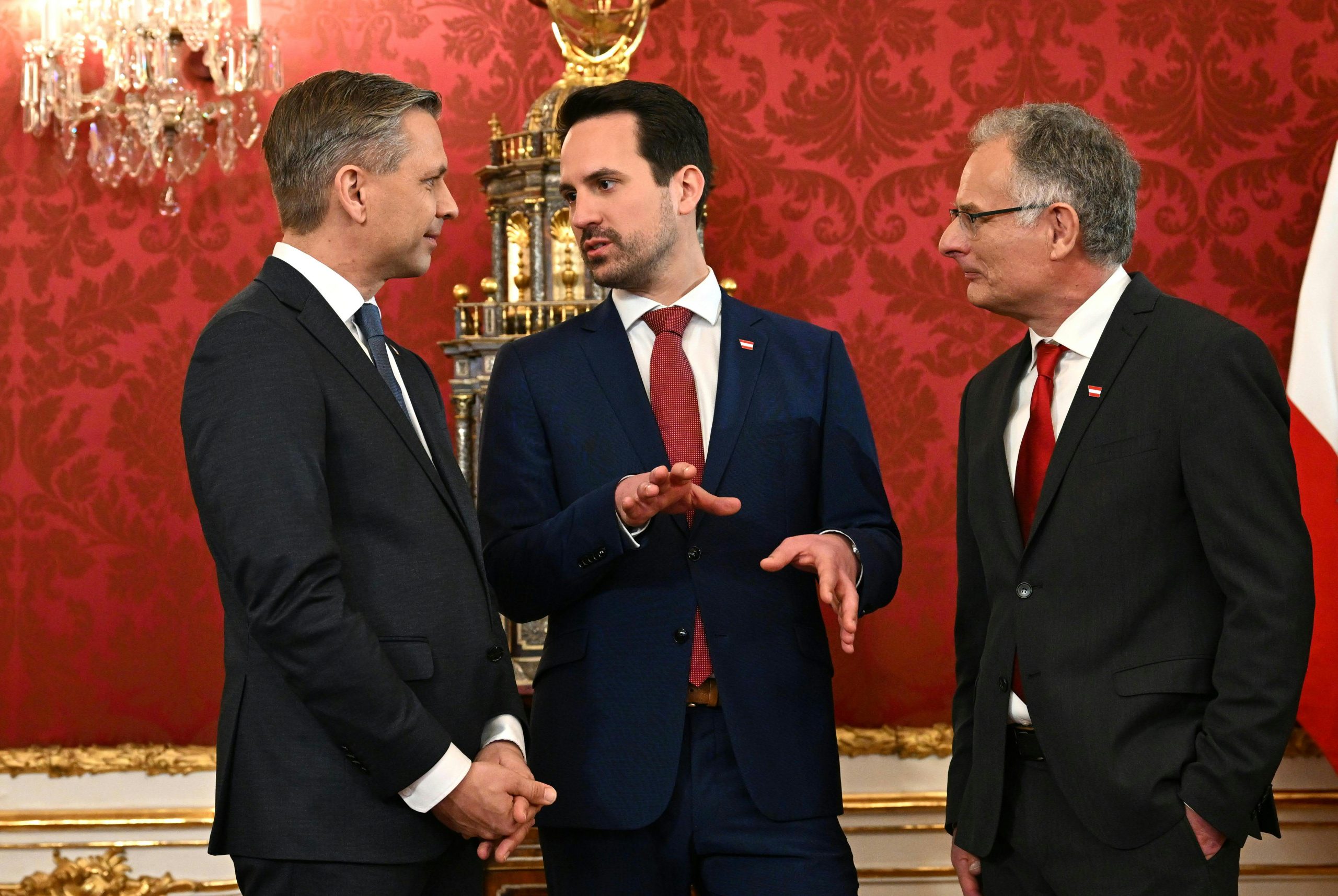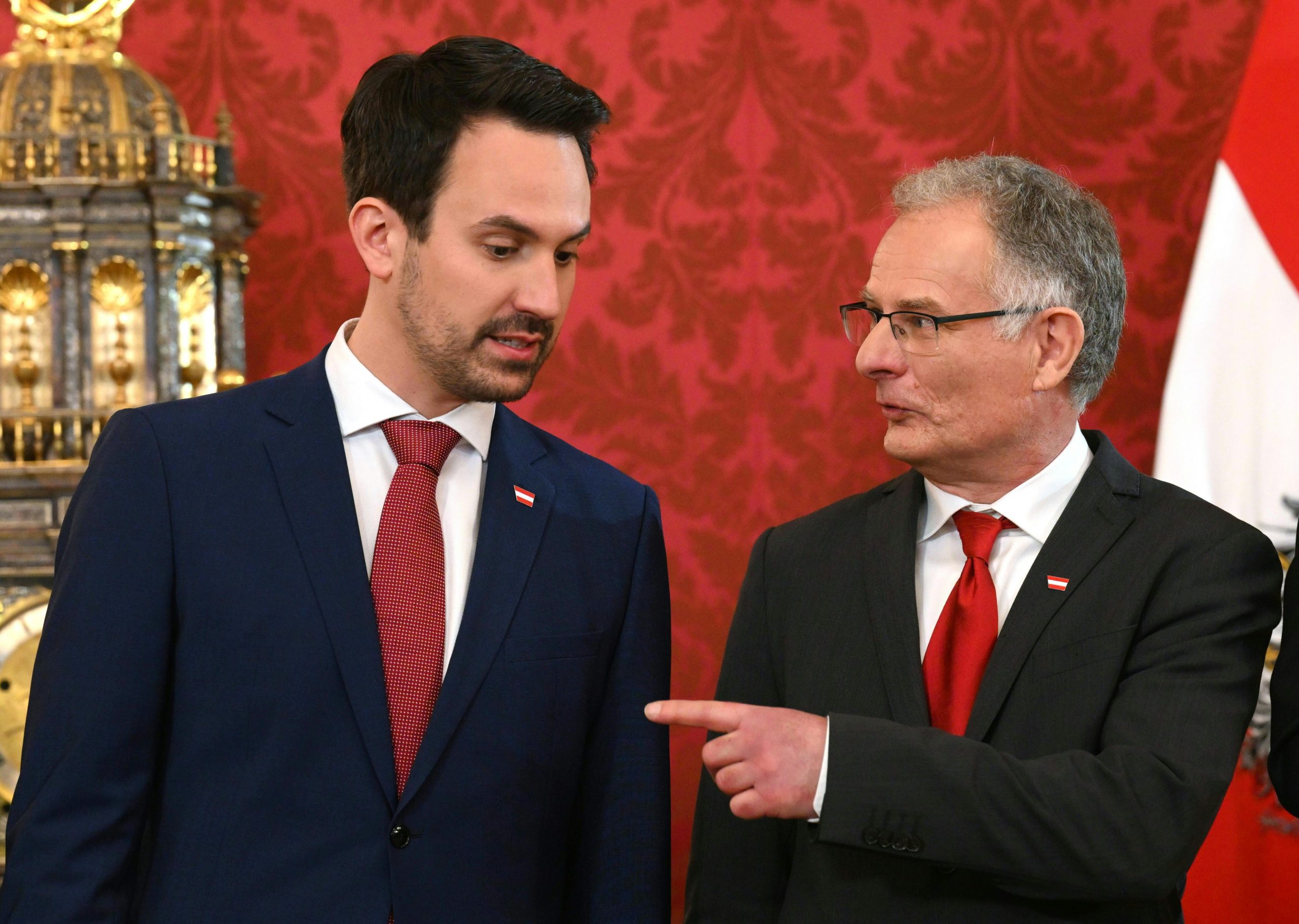Austria's New Government Sworn in by Van der Bellen
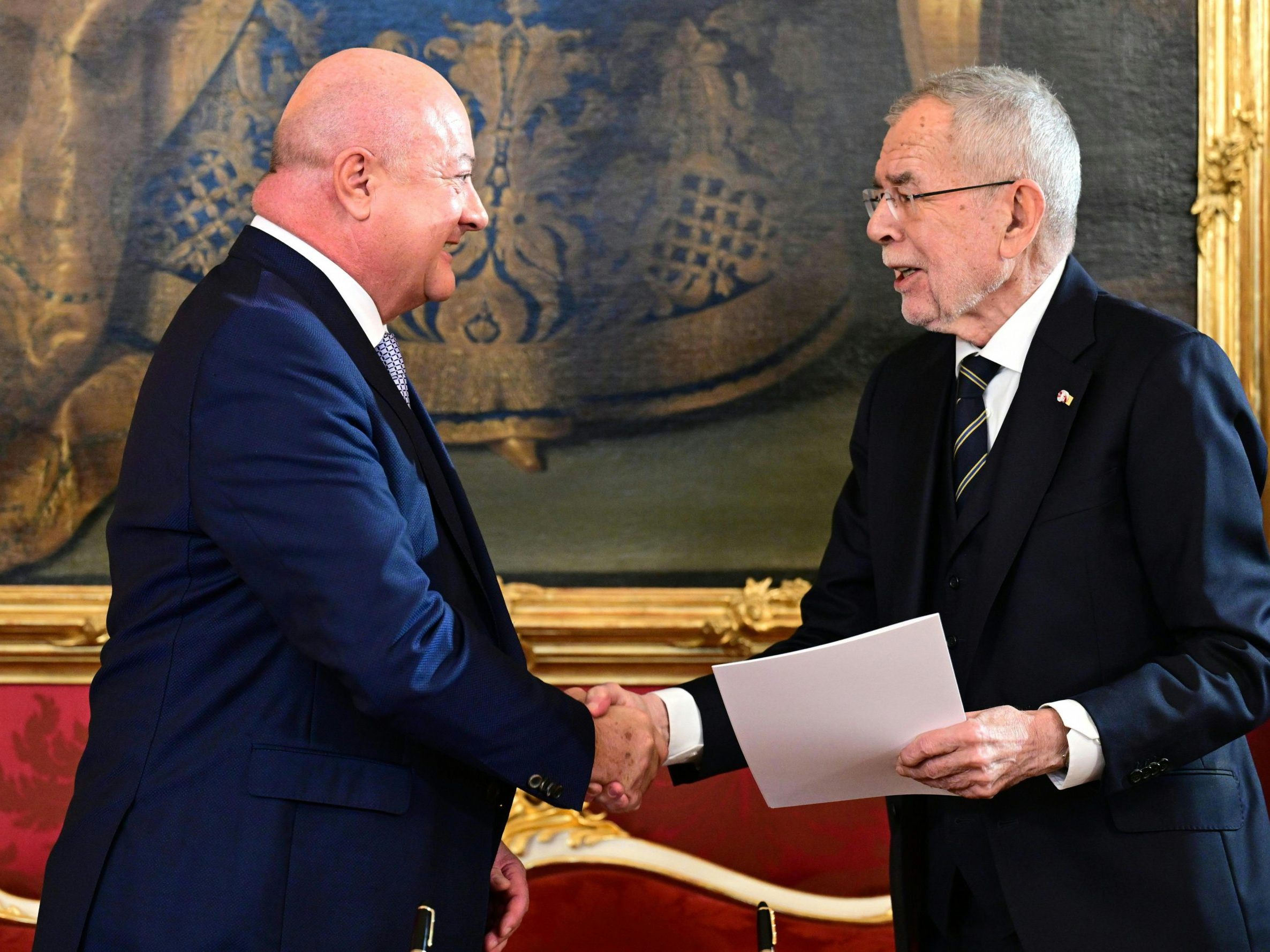
Christian Stocker (ÖVP) was sworn in as Federal Chancellor by Federal President Alexander Van der Bellen on Monday morning in the Vienna Hofburg. The ÖVP chairman leads the first federal government formed by the People's Party, SPÖ, and NEOS. It has 14 members, plus there are seven state secretariats.
The swearing-in was not new territory for Interior Minister Gerhard Karner, Defense Minister Klaudia Tanner, and Agriculture Minister Norbert Totschnig (all ÖVP), who were already represented in the same function in the black-green coalition. The previous State Secretary Claudia Plakolm (ÖVP) moves up to a ministerial position. The former Minister of Transport Jörg Leichtfried (SPÖ) takes the opposite path, becoming a State Secretary (in the Ministry of the Interior).
First Time in Government
All three party leaders - in addition to Stocker, the new Vice Chancellor Andreas Babler (SPÖ) and new Foreign Minister Beate Meinl-Reisinger (NEOS) - are part of a federal government for the first time.
Federal President Van der Bellen expressed being "very pleased" that in the negotiations everyone had stepped over their shadows. Remaining stubborn might have been tempting at times: "But being stubborn does not make a government."
He advised the government that it must support the economy, but also the welfare state. Furthermore, peace in Austria and Europe must be strategically secured. He named "climate change" as one of the greatest threats of the time, which must not be postponed. The president wants "reasonable" regulations on migration and integration. Furthermore, there is a need to strengthen liberal democracy, which is threatened by populism and fake news. He wished the government a "lucky hand" in these tasks.
Talks Before Swearing-In
Before the swearing-in, the previous government members were relieved of their duties (in absentia). Van der Bellen had formed an impression of the new government members over the weekend in personal talks and evidently found them suitable for office.
The government then proceeded on Monday about 20 minutes before 11 a.m. together across the Ballhausplatz for the swearing-in. There, ministers and state secretaries were already awaited in the presidential office - as is customary on this occasion - by family members who attended the ceremony.
According to protocol, the Federal Chancellor was sworn in first. Stocker was in office with the signing of the so-called certificate of appointment, that is, the decree of appointment, and the oath of office by Van der Bellen and the VP leader himself. Subsequently, the procedure was carried out for the other members of the government. Defense Minister Klaudia Tanner (ÖVP) was the only one to add the phrase: "so help me God" to the oath.
Afterwards, a small reception with family members was held for about an hour. On the way back to the Federal Chancellery, the government members were met with slogans against the Lobau tunnel and a restrictive refugee policy. A few dozen opponents of the government's plans had gathered at Ballhausplatz for a small protest action.
Further Swearing-Ins
For the Federal President, the ceremony on Monday was a routine act. Since Van der Bellen has been Federal President, he has sworn in ministers 155 times and state secretaries 21 times as of this day.
This number will soon increase. Because after an amendment to the Federal Ministries Act, which will take place soon, those government members whose responsibilities are still changing must be sworn in for their new tasks.
Currently, they are only taking over the agendas of their predecessors, and since ÖVP, SPÖ, and NEOS have assigned various responsibilities to different departments than before, a corresponding legislative decision must be made. For example, the labor agendas will be separated from the economic department and assigned to the Ministry of Social Affairs. The future Minister for Women, Eva Maria Holzleitner (SPÖ), and the Minister of the Chancellery responsible for families, Plakolm, were sworn in on Monday as ministers without portfolio.
(APA/Red)
This article has been automatically translated, read the original article here.






